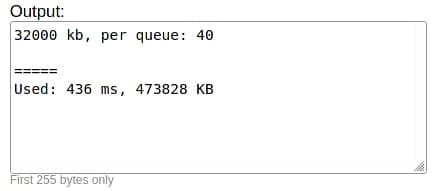So for the last couple of months I've been busy making a simple (and unfortunately slow) interpreted programming language called Cotton. Today, I was able to compress its entire source code into a single file and solve an atcoder problem using a small program in Cotton written in a huge interpreter in C++.
UPD: I rewrote the "glueing" script in Cotton. You can compare python and cotton scripts if you want (they work almost identically. however, i dont have regex library, so i could not remove comments using re like in python).
Why you need this information? You don't. I just wanted to share my excitement with someone.
The program in Cotton:
arr = make(Array)
.resize(read(Integer))
.apply(function(x){x=read(Integer);});
target = arr.copy().sort(function(a,b){a>b;})[1];
// don't have a function that would return element's position yet
for i = 0; i < arr.size(); i++; {
if arr[i] == target; {
println(i + 1);
return;
}
}
If you want to look at the beautiful obfuscated code of the interpreter, it's available here
UPD: I managed to optimize the code a bit, and therefore I was able to solve atcoder frog1 problem in 1.998 seconds :)
The solution:
arr = make(Array)
.resize(read(Integer))
.apply(function(x){x=read(Integer);})
.append(0, 0);
n = arr.size() - 2;
dp = make(Array)
.resize(arr.size())
.apply(function(x){x=100000000000000;});
dp[0] = 0;
for i = 0; i < n; i++; {
dp[i + 1] = min(dp[i + 1], dp[i] + abs(arr[i] - arr[i + 1]));
dp[i + 2] = min(dp[i + 2], dp[i] + abs(arr[i] - arr[i + 2]));
}
println(dp[n - 1]);












